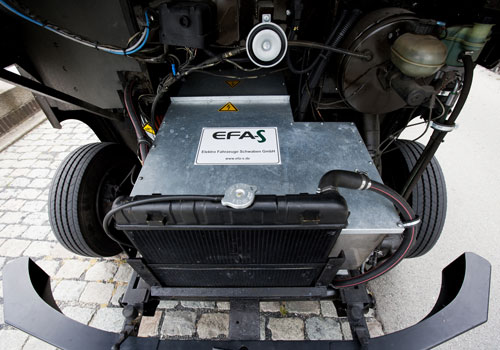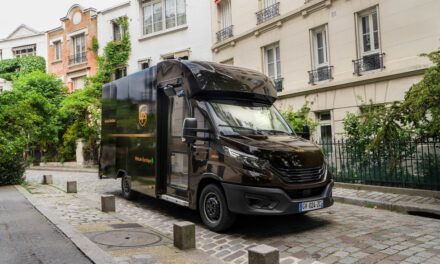
UPS deploys four all-electric delivery vehicles in Rotterdam
UPS has introduced four fully electric vehicles to the streets of Rotterdam, in the Netherlands. The company partnered with a European Union urban electric vehicles initiative, FREVUE, on the EUR 14.2m project converting P80 package delivery trucks into an electric version, the P80-E.
It follows the company’s deployment of six electric vehicles in nearby Amsterdam in October 2013.
The P80-E has a gross vehicle weight of 6,800kg, and its 90kW electric motor has a range of 100km on a single charge, producing virtually no emissions. The vehicle has a limited top speed of 80 km/h, like all UPS delivery vehicles in Europe.
UPS said the vehicle would be ideal for short routes in urban areas like Rotterdam.
Peter Harris, director for sustainability at UPS Europe, said: “Thanks to their zero tailpipe emissions, electric vehicles help reduce particulates and nitrogen dioxide in the atmosphere, and their quiet propulsion lessens the noise pollution in busy urban areas.”
Converted

The P80-E has been converted from diesel-power to a 90kW electric motor
The world’s largest package delivery company worked with German firm Elektro Fahzeuge Schwaben (EFA-S) to convert the diesel-powered P80 vehicles to fully electric power trains.
The vehicles use kinetic energy recovery systems (KERS), technology now used on Formula One race cars that captures energy created when vehicles brake, so that it can be re-used in recharging vehicle batteries.
For most of the P80-E’s charging needs, however, it is recharged via an external power supply, with batteries taking around eight hours to charge from empty to full.
The new electric vehicles form part of UPS’s global “rolling laboratory” testing out alternative vehicle technologies, working closely with motor manufacturers, government agencies and non-profit organisations to drive progress in new vehicle technologies.
UPS now has more than 3,100 alternative fuel vehicles in its worldwide fleet, including more than 140 in Europe.
The EU provided about EUR 8m in funding for the four-and-a-half year project through the Freight Electric Vehicles in Urban Europe (FREVUE) initiative, which is supporting the use of 127 electric vehicles in eight cities.












